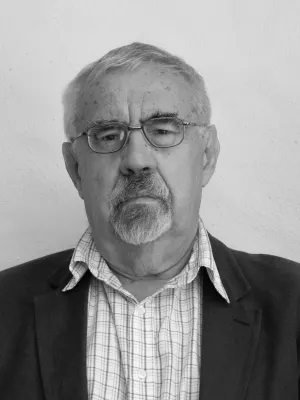
Gunnar Olofsson
Professor emeritus

The Expansion of the University Sector, the Emerging Professions and the New Professional Landscape : The Case of Sweden : Working Papers in Sociology Linnaeus University
Författare
Summary, in English
The rapid expansion of the university sector has channelled many students into study programs that lead to employment in new kinds of jobs, occupations and professional groups. There are three main reasons why more and more occupations get their training within the university system (a) The qualification and competence level of the labour force has been raised, due to changes in the economy and to decisions by the State to increase the formal training for an increasing number of occupations and semi-professions. (b) In the context of increasing student enrolment in higher education, universities, especially among the newer universities, construct new study programmes in order to link the content and profile of the programs to specific occupational niches or categories in the labour market. (c) Some occupational groups and associations strive to enhance their social standing by seeking to transfer their training to formal study programs in the universities in order to attain professional status (d) Categories b) and c) together make up the category of pre-professions This paper argues that the rapidly growing numbers of students in new vocational study programmes changes the relation between the higher education system and the occupational-professional categories in a number of ways. This is done with the concept of “a professional landscape” that encompass three waves of professions – the classical professions, the semi-professions and the now emerging “pre-professions” –Traditional semi-professions are becoming more and more academically oriented. Their training is permeated by abstract, scientific thought. New scientific disciplines have developed out of their professional training and practice – nursing studies, social work, leisure studies, etc. –A number of occupations are becoming more and more professionalized. They are trained at universities; the jobs and occupational niches where they are destined to work are transformed by being linked to scientific bodies of thought. They can be conceptualised as pre-professions. –The pre-professions bring with them the fruits and teachings of science, theories, methods into new social arenas and work settings, impregnating ever wider areas of society with the applied versions of different sciences. We now have a much more complex “professional landscape”, where the relations between the university system and the occupational–professio-nal field have been reconfigured. This paper gives a synthetic picture of these developments in Sweden, where the combined processes of expansion and reconfiguration are played out in a common and unified institutional form. Other countries follow partly different trajectories and they therefore get partly different “professional landscapes”.
Publiceringsår
2016
Språk
Engelska
Publikation/Tidskrift/Serie
Working Papers in Sociology
Länkar
Dokumenttyp
Rapport
Förlag
Department of Social studies, Linnaeus University
Ämne
- Sociology (excluding Social Work, Social Psychology and Social Anthropology)
Nyckelord
- profession
- professional landscape
- pre-profession
- semi-profession
- classical profession
- Swedish university system
- Sociology
- Sociologi
Status
Published
ISBN/ISSN/Övrigt
- ISSN: 2002-3928

